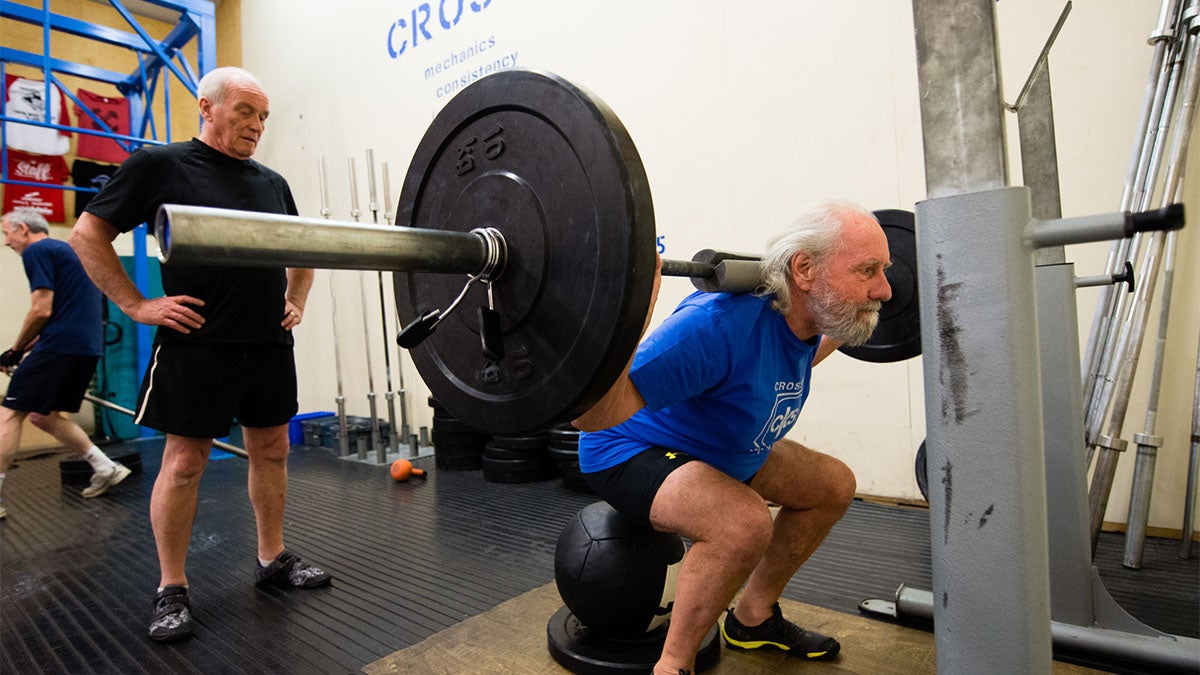Study: Exercise can strengthen your memory as much as your muscles

Regular exercise can strengthen more than muscles: It also can enhance cognitive function, according to researchers from the University of Maryland and Johns Hopkins University in a 2019 study published in the Journal of the International Neuropsychological Society.

Previously, researchers thought once adults reached middle age, memory couldn’t be improved. But according to the study, adult brains can be rewired.
While the results show how much stronger memory gets over time, the “how” remains a mystery. According to Gretchen Reynolds in The New York Times: “There has been growing scientific interest in delving into the various “ ’omics” of exercise. In broad terms, ’omics refers to the identification and study of molecules related to biological processes and how they work together. Genomics, for example, looks at molecules related to the operations of genes; metabolomics at those involved in our metabolisms, and so on.
One of the more compelling ’omics fields is proteomics because it focuses on proteins, which are imprinted by genes and subsequently jump-start countless other physiological processes throughout our bodies.”
Protein is the heart of interior biology, and a recent study published in the Journal of Applied Physiology by researchers at the University of Colorado examined 31 men and women, half of whom exercised regularly.
Researchers measured the subjects’ aerobic fitness and other health markers, studied their blood for a proteomic analysis, and found 800 proteins that were interrelated.
Researchers grouped the proteins into modules that were likely working in tandem to distinguish between 14 to 500 different proteins. They were able to find a correlation between the makeup of people’s modules and their health. The data suggests that it is integral to its complex process in that working out turns into wellness.
While focusing on those who exercise regularly, researchers were unable to distinguish which proteins were the result of maintaining a healthy lifestyle and which were from attempts to get healthy.
“Exercise does so many good things,” said Doug Seals, the study’s lead researcher. “The next frontier is to understand how.”
Uncertainty notwithstanding, an article written in the Harvard Health Letter reports exercise helps in the building of the chemicals that assist in the healthy development of brain cells. It also aids in the growth of new blood vessels and helps existing brain cells survive.
The prefrontal and medial temporal cortex also have a greater volume in people who exercise compared to those that don’t exercise.
“Even more exciting is the finding that engaging in a program of regular exercise of moderate intensity over six months or a year is associated with an increase in the volume of selected brain regions,” said Dr. Scott McGinnis, an instructor in neurology at Harvard Medical School, in the Harvard Health Letter article.
In a article written in the magazine of the fitness app Aaptiv, Dr. Vernon Williams from The Center for Sports Neurology and Pain Medicine at Kerlan Jobe Clinic in Los Angeles stressed the benefits of exercise affect the memories of all ages.
“In short, exercise can change the brain for the better, and by doing so, (it) can help protect thinking skills and memory in anybody,” Williams said.
For those who fear, or have a family history of, mental diseases such as dementia or Alzheimer’s, exercising boosts the prevention rate, according to Williams. Researchers and multiple studies estimate that by the year 2050 more than 100 million people will be diagnosed with dementia worldwide.
Exercise provides a glimmer of hope to prevent that from happening. A 2013 study of 20,000 adults as well as the subsequent development stages for dementia in advanced age. Those with high fitness levels were 36 percent less likely to develop dementia.
“Why the brain responds so favorably to exercise is uncertain, but at least one previous study that used brain imaging showed that brain shrinkage, normally found in aging, could be retarded by regular exercise, a finding that raises intriguing possibilities,” said Dr. Morton Tavel, a clinical professor at the Indiana University School of Medicine.
Dr. Joe Bates, a psychiatrist and pediatrician who leads the Tyler VA Clinic in Texas believes what we have learned lies within the development process of strengthening the brain.
“We’re constantly asking the brain to build new neural connections, and with new brain power, comes a better memory,” Bates said.
Corey Kirk is a masters sports journalism student at Arizona State University
Editor’s note: For the coming 2019-2020 academic year, the Global Sport Institute’s research theme will be “Sport and the body.” The Institute will conduct and fund research and host events that will explore a myriad of topics related to the body.

